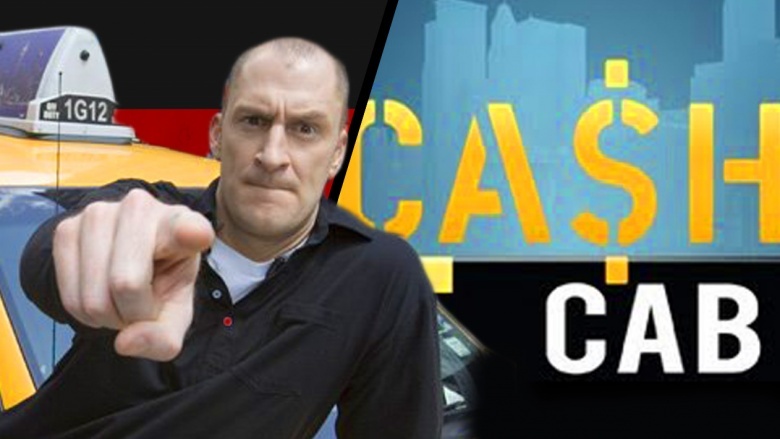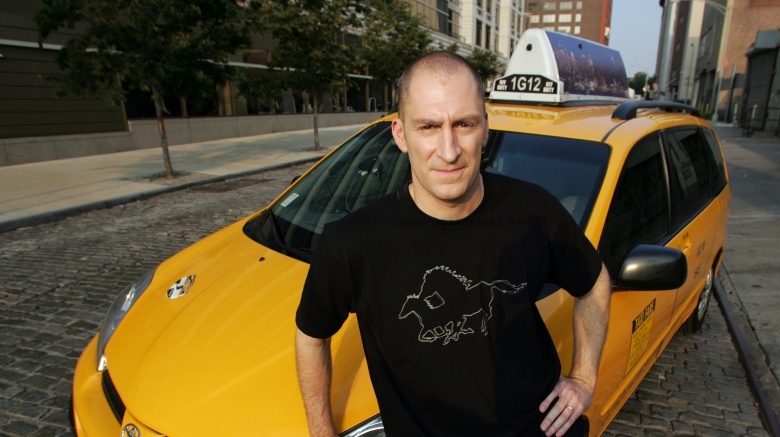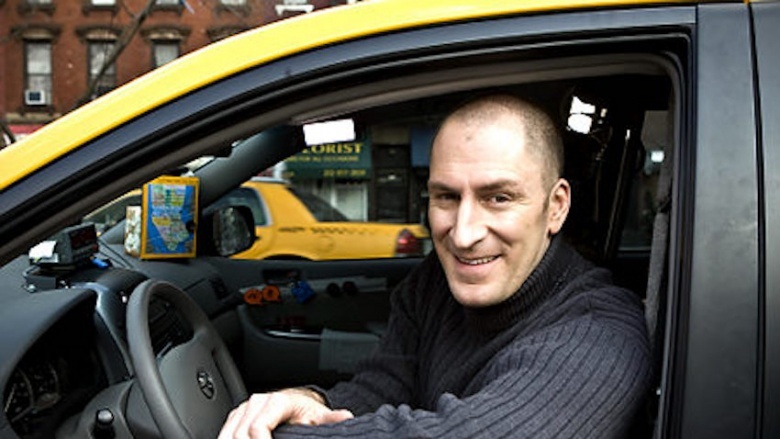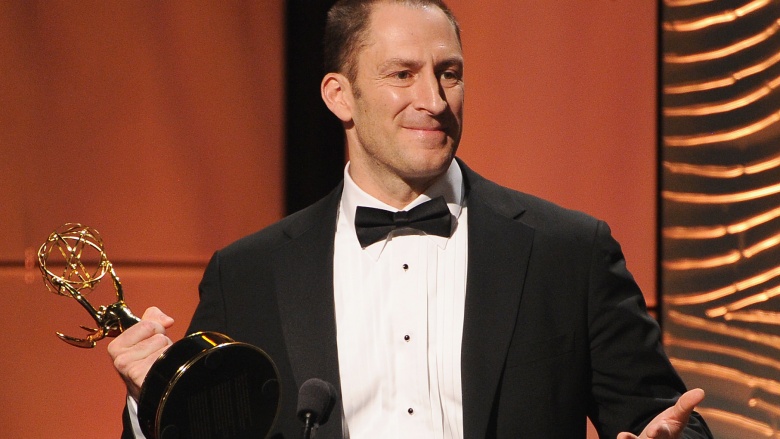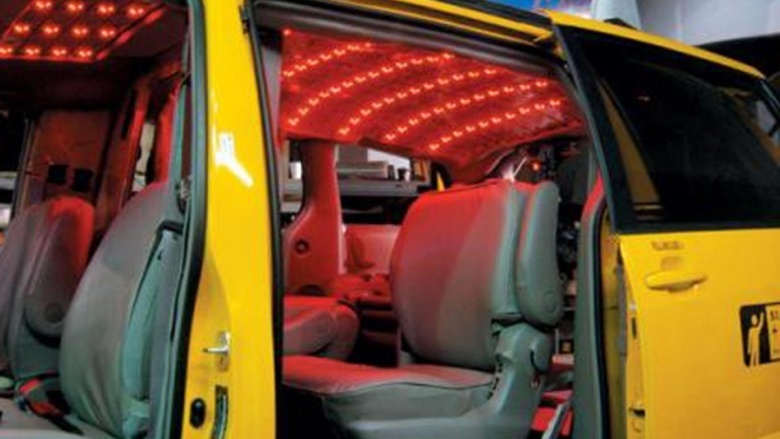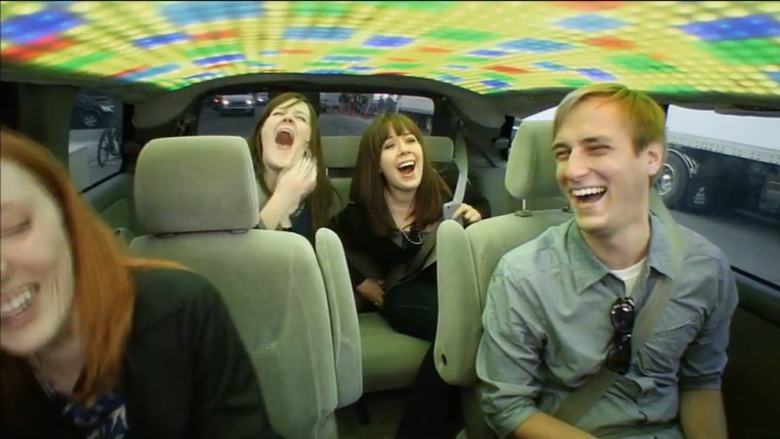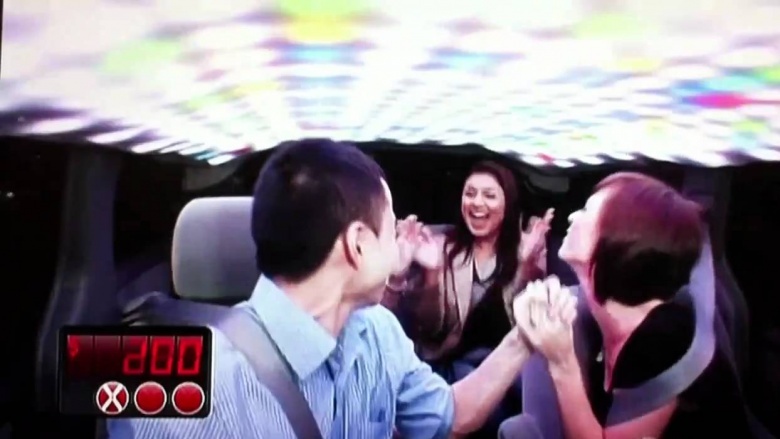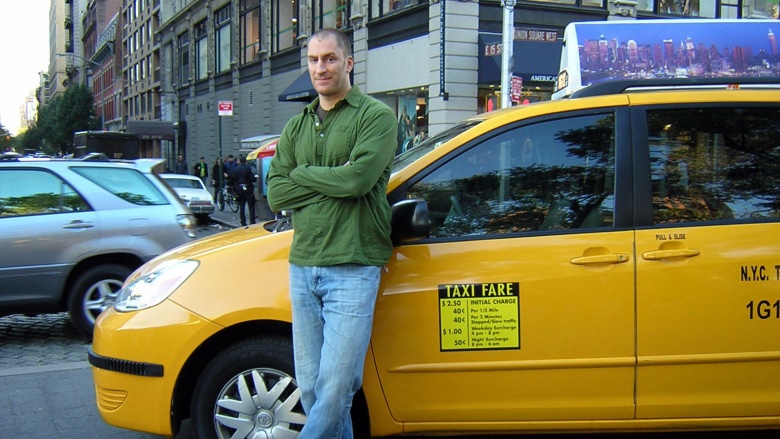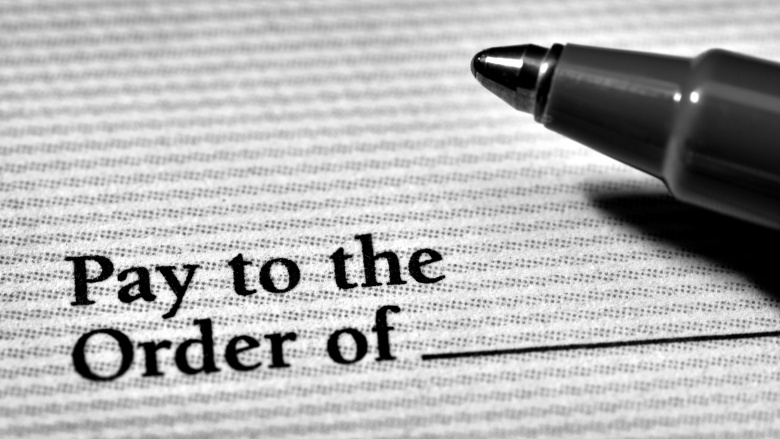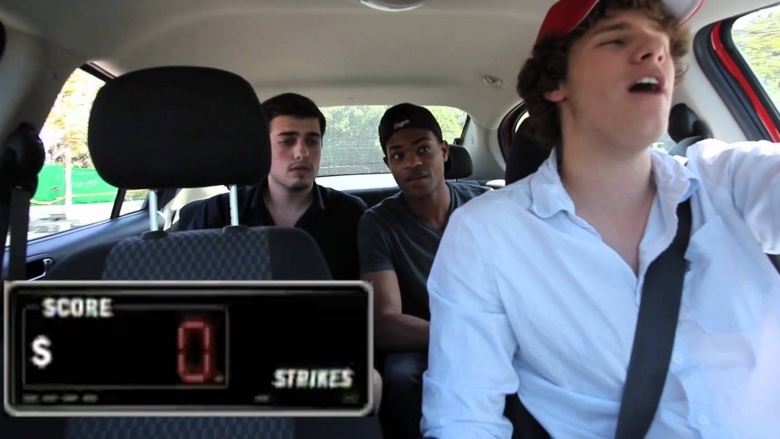The Untold Truth Of Cash Cab
Debuting on the Discovery Channel in 2005, Cash Cab is one of the most innovative and original game shows in TV history. Setting aside the traditional game show format of taping on a set in a studio somewhere in Hollywood, Cash Cab goes out into New York City and takes the game directly to contestants, surprising people looking for a regular cab ride with a full-on game show experience and the chance to win lots of money (which would pay for at least, like, two New York cab rides). Producing a show on the fly like that is also way more difficult than the traditional game show ... and way more intriguing. Here are some things you may not have known about Cash Cab.
Ben Bailey used to be a comedian and a limo driver
Cash Cab host and driver Ben Bailey moved to Los Angeles in the early 1990s to pursue a career as a stand-up comedian. He worked at The Comedy Store and performed support services like answering phones and bouncing before he was finally offered the chance to go up on stage one night because he got the other comedians waiting backstage to laugh. Bailey then did stand-up for more than a decade before he auditioned for Cash Cab, and it was his energy, charm, and ability to think quickly on his feet that won him the gig. He'd never driven a cab, but he had worked as a limo driver to help pay the bills during his comedy days.
Bailey became a real cab driver for the show
Bailey, of course, had to move to New York when production of Cash Cab got underway. He also had to go through the extensive training and legal paperwork required to become a fully licensed taxi driver. (California had no such regulations for limo drivers.) Per the guidelines of the Taxi and Limousine Commission, Bailey had to take a six-hour defensive driving course, get a signed letter from a doctor declaring him physically healthy enough to drive a cab all day, prove he was proficient in the English language, attend Taxi School, and pass the Taxi and Limousine Commission's cab driver exam, which consists of lots of questions about reading maps and New York City geography. Bailey successfully passed every aspect and received his New York City "hack license" ("hack" comes from "hackney," a horse-drawn vehicle for hire).
Bailey gets help running the game
It's hard enough to ask strangers a bunch of trivia questions while also navigating traffic in one of the world's busiest and most crowded cities. That's why Bailey doesn't (and probably couldn't) keep track of all the workings of a Cash Cab game in progress. One of several production assistants (Bailey calls them "the Vanna Whites of Cash Cab") rides shotgun and does most of the effects. The assistant triggers the flashing lights, music, video monitors, and other in-cab game machinery. The assistant is also in charge of scoring, as well as shuffling contestants in and out of the cab and getting them to sign release forms. One thing the production assistant doesn't do is feed Bailey the trivia questions—those are provided to the host through his earpiece.
The cab ride is real
So while Bailey doesn't operate the game machinery because he has to drive, he is responsible for pushing the flag down on Cash Cab's real, working fare meter. The New York Taxi and Limousine Commission requires all New York City cabs to have a working meter so as to have a legal record that each trip took place. However, those lucky enough to land in the Cash Cab—win or lose—don't have to actually pay for the ride. (Bailey has joked—however accurately—that the only two free forms of transportation in the Big Apple are the Staten Island Ferry and appearing on Cash Cab.)
Some of the contestants are recruited beforehand
Production coordinators for the show approach possible contestants in public places—multiple Cash Cab participants have said they were stopped in or around Union Square. But they don't say they're from Cash Cab. This ensures a genuinely surprised reaction when the contestant eventually enters the cab and the game starts.
One contestant was told he was being vetted for a travel show called When in Rome, in which real people weighed in on their favorite, little-known gems in a major city. A few weeks later, he was told that he was selected to be the host for the New York City episode and was given a taping date and a location to meet a transport van. They also asked him to bring a couple friends. When they met the producer, they were taken aback when the "transport van" ended up being the Cash Cab. Other recruits were asked to participate in a lengthy written survey or take a current events exam to see if they'd be a good fit for an unnamed game show.
It's mostly real
So while the surprise is real, the order in which things are filmed isn't, necessarily. After contestants are picked up and the lights and music let them know they're on Cash Cab, Bailey pulls over and the production assistant sitting shotgun has the contestant sign a whole bunch of forms. Among them: agreements that they'll pay taxes on their winnings and a nondisclosure agreement about the outcome of the game.
Some contestants do come right off the street
But not all contestants are picked out before they're picked up—some really are totally random people hailing a cab. In that case, the process of shooting goes a little differently. The flashing lights and music go off and Bailey dives right in with the questions to the often perplexed and dazed rider/game show contestant. After a few questions, Bailey will then find a place to pull over so the contestant can sign paperwork and get a full explanation of the rules of the game. Contestants also have the chance to opt out at that point—if so, the footage won't air, they don't get to keep any money they won, and they have to leave the cab. (But they still don't have to pay for the ride up to that point.)
Contestants aren't allowed to do a few things
Once the contestant has agreed to be on the game and is inside the cab, they're also given a brief rundown about the intricacies of shooting the show. For example, you can't lean forward in the cab because it messes up the show's fish-eye lens, and cell phones are to be turned off so contestants can't cheat. It's also at this time that the contestants may have to re-tape their scene of hailing the cab to make sure a good shot is captured. (In that case, the actual "surprise" shot, taped earlier, is edited in.)
It should be called "Check Cab"
While winning contestants are shown receiving actual cash in their game—it is a show called Cash Cab, after all—it doesn't really work like that, for legal reasons. Contestants don't get to keep cash. The money used on the show is a prop, and it's returned to the production assistant immediately after the game is over. Instead, the contestant is sent a check for their winnings a few weeks after their episode is taped. It has to be done that way for tax purposes. (Additionally, unsuccessful Cash Cab contestants take home a T-shirt, totally free, right then and there.)
Sometimes things don't go smoothly
Because random people off the street are sometimes selected to be contestants, they're often not at all interested in actually being a part of Cash Cab. Bailey has said some people have gotten in the cab and just stared at their phones, or have asked if the festive lights and music can be turned down a bit. And the Street Shout-Outs are sometimes challenging—past contestants have reported having to ask multiple people to find someone willing to be on camera or who can provide a legitimate answer. As far as gameplay is concerned, there is some wiggle room as far as time goes on the Red Light Challenge, because not every red light lasts the same amount of time.
